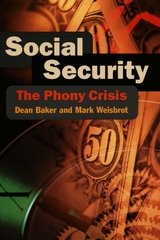
Is Venezuela’s Bolivarian revolution under Hugo Chávez truly revolutionary? Most books and articles tend to view the Chávez government in an either-or fashion. Some see the president as the shining knight of twenty-first-century socialism, while others see him as an avenging Stalinist strongman. Despite passion on both sides, the Chávez government does not fall easily into a seamless fable of emancipatory or authoritarian history, as these essays make clear.
A range of distinguished authors consider the nature of social change in contemporary Venezuela and explore a number of themes that help elucidate the sources of the nation’s political polarization. The chapters range from Fernando Coronil’s “Bolivarian Revolution,” which examines the relationship between the state’s social body (its population) and its natural body (its oil reserves), to an insightful look at women’s rights by Cathy A. Rakowski and Gioconda Espina. This volume shows that, while the future of the national process is unclear, the principles elaborated by the Chávez government are helping articulate a new Latin American left.

According to the authors of this important new study, the answer to these questions is a resounding no. In Social Security: The Phony Crisis, economists Dean Baker and Mark Weisbrot argue that there is no economic, demographic, or actuarial basis for the widespread belief that the program needs to be fixed.
As the authors emphasize, there is virtually no disagreement about the facts of Social Security's finances, or even the projections for its future. Rather, the Social Security debate has been foundering on misconceptions, confusion, and lack of agreement on the meaning of crucial terms.
The authors also take on related issues: that privatization would help save Social Security, that America has a pressing need to increase its national savings, and that future generations will suffer from the costs—especially for health care—of supporting a growing elderly population.
As New York Times columnist Fred Brock recently wrote, "So-called reform of the Social Security system is looking more and more like a solution in search of a problem." In this accessible and insightful work, Baker and Weisbrot seek to cut through some of the myths and fallacies surrounding this crucial policy issue.
"Dean Baker and Mark Weisbrot have no trouble at all demonstrating that even on highly conservative assumptions about economic growth, the much-forecast insolvency of the Social Security system by about 2030 is most unlikely to happen then, if indeed ever."—The Economist
"The authors challenge basic assumptions with vigor and intelligence. . . . An absolutely relevant and important analysis, presented with force and clarity, that asks, basically, what kind of a nation we really are."—Kirkus Reviews
"Proponents—like George W. Bush—of Social Security privatization . . . typically ignore prospects for a stagnant or falling stock market. In Social Security: The Phony Crisis, [Baker and Weisbrot] show how a falling stock market could place pressure on both future Social Security payments and privatization schemes because earnings from the trust fund could actually fall."—Jeff Madrick, New York Review of Books
READERS
Browse our collection.
PUBLISHERS
See BiblioVault's publisher services.
STUDENT SERVICES
Files for college accessibility offices.
UChicago Accessibility Resources
home | accessibility | search | about | contact us
BiblioVault ® 2001 - 2024
The University of Chicago Press









